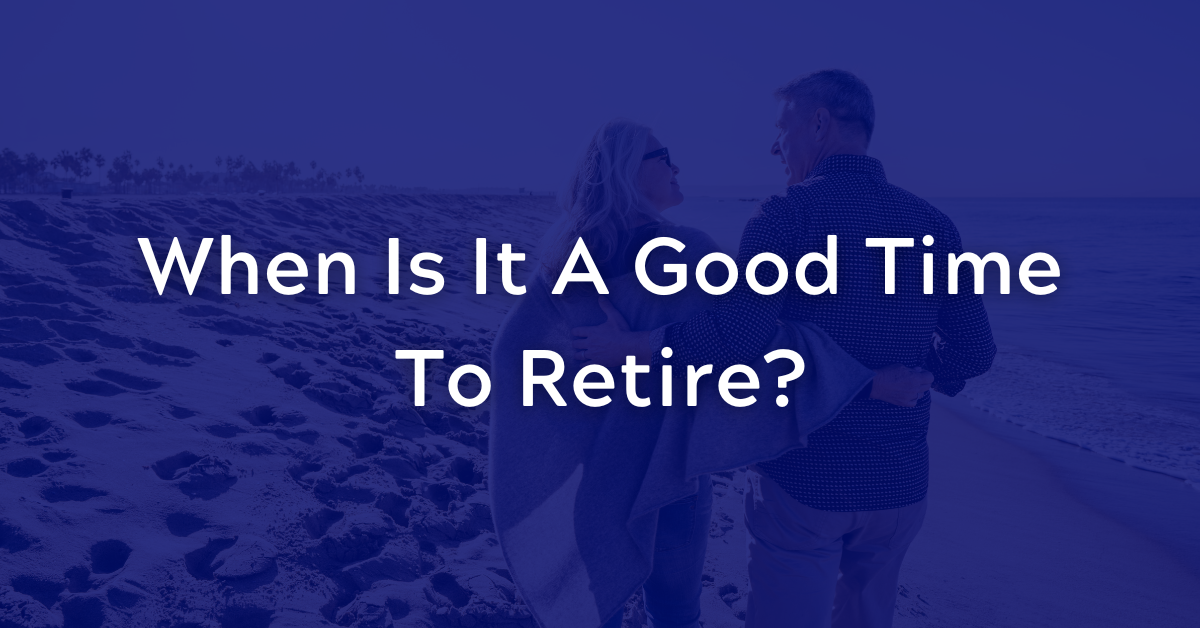You may or may not be at the stage of retirement at the moment, but it’s still a thought you should keep at the back of your mind. We all know that the most common retirement age is 65 years old in Canada, but what is the best time for you to retire?
DO YOU HAVE ENOUGH PASSIVE INCOME?
The first piece to consider is if you have enough passive income to live your lifestyle in retirement. A retirement budget consists of adding up all of your costs (housing, food, entertainment, etc.) and then indexing that for inflation. When calculating inflation, it’s probably safe to use 3% with today’s economy.
The next thing to do is calculate your desired income when you’re retired. How much money do you need now to generate the income that you desire when you are retired? An easy and common strategy is “The 4% Rule”, but I will not fully endorse it as it is not always accurate. This states that if you withdraw 4% of your portfolio and can live on it, provided your portfolio receives average returns, you shouldn’t run out of money. For example, let’s say the after-tax income required is $85,000. Divide that by 0.04 and you’ll get $2,125,000. Ultimately, your lifestyle and retirement budget will determine what’s the right nest egg amount required for you. Life expectancy and whether you want to spend all your money are other factors. It’s a scary thing to have no source of income when you’re still healthy and alive.
CHILDREN, FAMILY COMMITMENTS, & DEBT
The second factor to consider is children & family commitments. Are your children all grown up and self-sufficient? Or are you still supporting them with school or providing them with a place to live? Maybe your parents are not financially stable, and they depend on you for a flow of income. These are some things to consider before retirement. If no one is financially dependent on you now and you’re confident that won’t change in the future, that will give you more flexibility for retirement.
Another factor to consider is whether or not you have debt. Whether it’s mortgages, car loans, personal loans, or credit card bills. Ideally, you don’t want to deal with interest rate risk in retirement, so having a minimal amount of debt will protect you from this.
The final question you should answer is, are you mentally prepared and do you have a plan for your time in retirement? I’ve seen several individuals retire, and eventually realize that they don’t have enough hobbies or interests. Those individuals would then come back to work part-time. So, what I’m trying to say is, it’s much better to fully understand yourself before retirement. Which organizations you’d like to volunteer for, will you travel to? Will you spend time with family & friends?
YOU’RE NOT READY FOR RETIREMENT – WHAT SHOULD YOU DO?
You may not be ready to retire at this moment, but you want to plan for it. What should you do now? Well, the most important thing is to understand the government benefits available where you live. You can find this information by either talking to your financial advisor or contacting a representative from your country’s pension plan. For example, here in Canada, we have the Canada Pension Plan (CPP) & Old Age Security (OAS) pension. To qualify for receiving monthly taxable payments, you must be at least 60 years old for the CPP (65 years of age for OAS). If you start receiving your pension earlier, the monthly amount you’ll receive will be smaller. If you decide to start later, your monthly amount will be larger.
And that is all I have for you today. Do you have any questions about your retirement plan? If you do, just leave your questions down below. Good luck with your (future) retirement!







